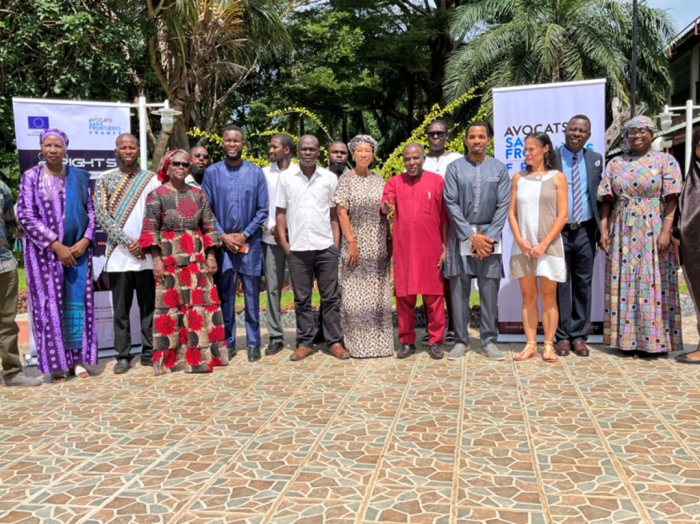
At the NGO Forum preceding the ACHPR session, ASF France hosted a panel titled: “AI and Human Rights in Africa: Navigating the Future of Governance and Development.” The session examined how African nations can harness the potential of artificial intelligence while safeguarding human dignity, democratic participation, and data privacy.
Moderated by Dr. Abiodun Odusote, Associate Professor of Law at the University of Lagos, the panel featured Wynyfred Achu-Egbuson of the EU Delegation to Nigeria and ECOWAS, Stephanie Lamy of Danaides, Y.Z. Ya’u, Executive Director of CITAD, and Aji Fama Jobe, an IT Consultant at the World Bank Group in The Gambia.
Speakers underscored the importance of building African-led AI frameworks rooted in human rights and ethics. They cautioned that without regulation, AI technologies could reinforce inequality and threaten privacy, particularly in regions with weak data protection laws.
Following the NGO Forum, ASF France convened a side event “Freedom of Expression and Digital Surveillance in Africa” at a local hotel in Banjul. The discussion focused on the growing use of surveillance technologies across the continent and their implications for journalism, civic participation, and personal privacy.
Panelists included Neneh Macdoull Gaye, Chairperson of the Information Commission; Isatou Keita, President of the Gambia Press Union; Anna Njie, President of the Female Lawyers Association–Gambia; and Dr. Abiodun Odusote of the University of Lagos. The session was moderated by Muhammed S. Bah.
Speakers collectively warned that unchecked digital surveillance could silence journalists, stifle dissent, and erode democracy. They called for stronger legal safeguards, transparency in data collection, and public accountability in the use of surveillance tools.
ASF France’s Executive Director, Anne Lutun, reaffirmed the organisation’s commitment to ensuring that Africa’s digital transformation respects human rights.
“Our participation at the ACHPR underscores our belief that technology must empower, not control,” she said. “As Africa’s digital user base grows, governments must balance security concerns with fundamental freedoms and transparency.”
She cited worrying statistics, noting that by 2024, more than half of Africans lived in countries where freedom of expression was only “partly free” or “not free,” with a sharp rise in spyware attacks against journalists and activists.
Y.Z. Ya’u, Executive Director of CITAD, said the e-RIGHTS consortium comprising ASF France, CITAD, and Spaces for Change has been working to create frameworks that anticipate the risks of digital technologies while maximising their benefits.
“AI offers efficiency and innovation, but it also concentrates power in the hands of a few big tech monopolies,” he noted. “African countries must develop strong data governance laws to ensure our information is not exploited without accountability.”
He warned that Africa’s weak regulatory environment has left citizens’ data vulnerable to external exploitation.
Hon. Commissioner Janet Ramatoulie Sallah-Njie, Special Rapporteur on the Rights of Women in Africa at the ACHPR, urged governments to respect existing legal instruments, including the Principles on Freedom of Expression and Access to Information in Africa.
“When national security becomes a blanket justification for unchecked surveillance, we risk turning citizens into suspects,” she cautioned. “Unlawful monitoring of journalists and activists undermines the very rights enshrined in the African Charter.”
Representing the host government, Dr. Ismaila Ceesay, minister for Information, Media and Broadcasting Services, reaffirmed The Gambia’s commitment to advancing online freedoms and data protection.
“In today’s digital era, freedom of expression cannot be fully realized without corresponding safeguards for privacy and data protection,” he stated. “Technology must serve as a tool for empowerment rather than control.”
Dr. Ceesay highlighted recent national milestones, including the implementation of the Access to Information Act, 2021 and the enactment of the Personal Data Protection and Privacy Act, 2025. These, he said, demonstrate The Gambia’s resolve to build a transparent and accountable digital governance ecosystem.





